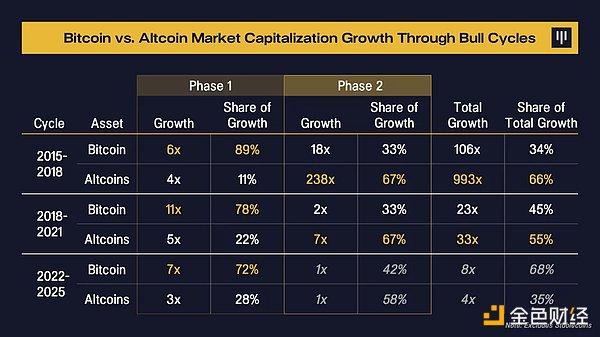Author: Zen, PANews
Original Title: Led by Harvard University, Which Famous US Universities Are Betting on Cryptocurrency?
In recent years, cryptocurrency has gradually evolved from a niche experiment to an emerging asset class in various institutional investment portfolios. Especially in the United States, many renowned universities' endowment funds have begun to try using crypto assets for asset allocation, to hedge against inflation or seek long-term value appreciation opportunities.
University endowment funds are pools of funds accumulated by academic institutions, typically existing in the form of charitable donations. These funds are used to support teaching and research and can be invested in various assets.
Recently, Harvard University's disclosure of holding a Bitcoin position worth over hundreds of millions of dollars has sparked widespread attention from academia and the market regarding university participation in crypto assets. In this article, PANews will inventory universities that have publicly disclosed or been revealed to participate in the crypto field, explaining their investment methods, disclosure time, and scale, to understand the stance and practice differences of universities in the digital asset wave.
Harvard University
Harvard University's endowment fund has consistently ranked first among global university funds in financial reports and public statistics, with a management scale of approximately $50 billion. In crypto asset allocation, Harvard's endowment fund also has the largest known Bitcoin exposure among US university endowment funds.
The Harvard Management Company, responsible for managing Harvard University's endowment fund, recently disclosed in the latest 13-F filing submitted to the SEC that as of June 30, 2025, it holds approximately 1.9 million shares of BlackRock iShares Bitcoin Trust (IBIT), valued at nearly $116 million. IBIT has become the fund's fifth-largest investment during the same period, following Microsoft, Amazon, travel technology company Booking Holdings, and Meta, slightly higher than its investment in Google's parent company Alphabet.
Previously, The Information cited sources saying that Harvard had invested in the crypto field as early as 2018, having invested in "at least" one crypto fund. Additionally, according to CoinDesk, Harvard University has been quietly purchasing cryptocurrencies through exchanges like Coinbase since around 2020.
Brown University
Brown University's endowment fund is known for its high investment returns, with an annual return rate of 11.3% for the 2024 fiscal year, an average annualized return of 10.8% over the past 10 years, and 13.1% over the past 5 years.
Like Harvard and the University of Michigan, Brown University's endowment fund is rumored to have started buying Bitcoin on exchanges around 2020. However, it was not until this May that Brown University first publicly disclosed its Bitcoin investment. According to the SEC 13-F disclosure, Brown University held 105,000 shares of BlackRock IBIT Bitcoin ETF stocks as of March 31, 2025, with a market value of approximately $4.915 million at the time.
Previously, Brown University had no public crypto asset investment record, and this disclosure makes it the latest example of a US university announcing Bitcoin holdings after Emory and the University of Austin.
Emory University
Emory University first disclosed its Bitcoin position in public materials in October 2024, becoming the first US university endowment fund to publicly disclose such a position. According to the SEC filing on October 25 last year, Emory University held nearly 2.7 million shares of the Grayscale Bitcoin Mini Trust (GBTC), with a market value of approximately $15.1 million at the time. As Bitcoin's price subsequently rose to nearly double, this asset may now be worth over $30 million.
Emory Investment Management (EIM), responsible for financial oversight of the university's endowment fund valued at over $11 billion, initially made the investment in trust form. EIM's Chief Investment Officer Srinivas Pulavarti revealed that when the stocks were converted to an ETF structure, the university was forced to disclose its holdings. Emory Accounting Associate Professor Matthew Lyle pointed out that using ETFs issued by well-known companies can reduce security risks compared to direct Bitcoin purchases.
University of Austin
The University of Austin (UATX) is an emerging private university with an endowment fund of about $200 million since its establishment in 2019.
In February 2025, Cointelegraph reported that the University of Austin plans to establish a Bitcoin investment fund of over $5 million, to be incorporated into its endowment fund management. Chad Thevenot, UATX's Senior Vice President of Development, stated that the university would develop a Bitcoin holding strategy of at least five years, believing Bitcoin offers long-term value opportunities similar to traditional assets. The fund's Chief Investment Officer, Chun Lai, told the Financial Times: "We don't want to be left behind when crypto's potential becomes apparent."
Additionally, UATX has collaborated with Bitcoin service company Unchained to raise funds, with Unchained CEO Joseph Kelly donating 2 bitcoins to the university's Bitcoin fund. UATX Associate Professor Thomas Hogan stated that the purpose of university endowment funds is to serve students, and Bitcoin provides a unique opportunity for UATX to fulfill its commitment to cultivating future leaders and innovators.
Stanford University
Stanford University itself has not directly disclosed Bitcoin holdings in its endowment fund, but a student-operated Blyth Fund seized the opportunity to buy Bitcoin last year. In March 2024, Stanford Blockchain Club leader Kole Lee announced that the Blyth Fund would invest approximately 7% of its portfolio in Bitcoin. The fund achieved Bitcoin exposure by purchasing BlackRock IBIT ETF when Bitcoin was priced around $45,000.
It's important to note that the Blyth Fund is not part of Stanford's official endowment fund but a part of Stanford's discretionary fund pool, giving students investment decision-making autonomy. Established in 1978 to honor legendary banker Charles Blyth, the fund now manages assets in the tens of thousands of dollars by investing in stocks, bonds, and other assets, including BTC.
As of now, Stanford has not publicly disclosed any information about its official endowment fund holding crypto assets, but the investment actions of student teams indicate that there are investors within Stanford who hold an optimistic view of cryptocurrencies.
Yale University
Yale University has the second-largest endowment fund in the United States, valued at over $30 billion, but its involvement in crypto assets is also primarily based on media reports rather than official disclosures.
In 2018, Bloomberg reported that Yale participated in the financing of a $400 million fund by the well-known venture capital fund Paradigm, being one of its investors. Additionally, CNBC reported that Yale's Chief Investment Officer David Swensen also invested on behalf of the university in a $300 million crypto fund by Andreessen Horowitz.
According to CoinDesk, Yale, like Harvard, Brown, and the University of Michigan, began purchasing small amounts of Bitcoin through cryptocurrency exchanges as an investment around 2020 (specific amount undisclosed).
However, Yale has not made any public confirmation or comment on the aforementioned investment. Currently, it is known that Yale has been involved in early-stage venture capital funds related to cryptocurrencies, but has not publicly disclosed specific data on Bitcoin or ETF holdings, maintaining a relatively cautious investment attitude with limited public information.
Massachusetts Institute of Technology (MIT)
MIT's endowment fund is also substantial, with approximately $24.6 billion for the 2024 fiscal year, but official public materials have not disclosed any direct holdings of Bitcoin or cryptocurrency ETFs. Historically, MIT has been known for its flexible investment style. According to The Information, MIT participated in blockchain-themed venture capital fund investments as early as 2018.
Additionally, based on public information, MIT has a close relationship with cryptography and blockchain technology research, such as receiving donations for digital currency research projects at the MIT Media Lab. However, as of now, MIT has not disclosed any cryptocurrency positions in SEC filings or financial reports. This suggests that MIT may have been involved in crypto assets through previous blockchain fund investments, but the specific amount and timing remain opaque, with no official comment from MIT.
University of Michigan
The University of Michigan's endowment fund has been associated with cryptocurrency investments since 2018, when the university invested approximately $3 million in CNK Fund I, a crypto-focused fund managed by Andreessen Horowitz (a16z) in June 2018. According to a board meeting agenda from February 2019, the fund was listed as an "approved follow-on investment partner," indicating potential plans for additional investment, but no specific additional amount was published.
Furthermore, according to CoinDesk, the University of Michigan's endowment fund also began purchasing small amounts of Bitcoin through exchanges around 2020. Overall, the university's endowment fund has indirectly positioned itself in crypto assets through venture capital, with a clear investment in the field amounting to several million dollars, and the school has made no official public comment on this matter.








